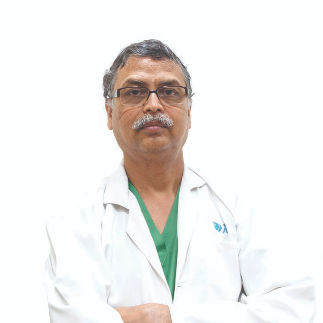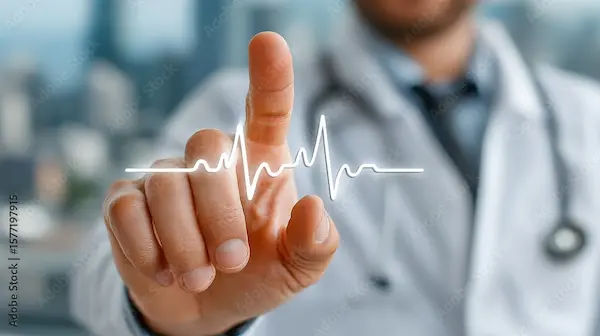Brain Tumours: Important Information to Consider
Know about the brain tumours, common symptoms, causes, diagnosis, tests and treatment options. Learn about the tips for the management of brain tumours.

Written by Dr. Dhankecha Mayank Dineshbhai
Reviewed by Dr. M L Ezhilarasan MBBS
Last updated on 13th Jan, 2026

Introduction
If you or a loved one has been diagnosed with a brain tumour, it’s natural to feel overwhelmed. Understanding what a brain tumour is, its symptoms, causes, and treatment options can help you make informed decisions about your health. This article provides simple and compassionate guidance to help you navigate this challenging journey.
What Is a Brain Tumour?
A brain tumour is an abnormal growth of cells in or around the brain. These tumours can be benign (non-cancerous) or malignant (cancerous). While benign tumours grow slowly and usually don’t spread, malignant tumours can grow aggressively and affect surrounding brain tissue.
Brain tumours can be:
- Primary – Originating in the brain.
- Secondary (Metastatic) – Spreading to the brain from cancer in another part of the body (e.g., lung, breast).
Consult an Oncologist for Personalised Advice
Common Symptoms of Brain Tumours
Symptoms vary depending on the tumour’s size, type, and location. Some common signs include:
- Headaches (often worse in the morning or with activity)
- Seizures (sudden, uncontrolled movements or loss of consciousness)
- Nausea and vomiting (especially in the morning)
- Vision or hearing problems (blurred vision, double vision, ringing in ears)
- Weakness or numbness in arms or legs
- Memory or concentration issues
- Personality or mood changes
If you experience persistent or worsening symptoms, consult a doctor immediately.
What Causes Brain Tumours?
The exact cause of most brain tumours is unknown, but certain risk factors may increase the likelihood:
- Genetic conditions (e.g., Neurofibromatosis, Li-Fraumeni syndrome)
- Exposure to radiation (e.g., previous radiation therapy to the head)
- Family history (rarely, some brain tumours run in families)
- Weakened immune system (increases risk of certain tumours)
Most brain tumours occur randomly without a clear cause, so don’t blame yourself if diagnosed.
Diagnosis and Tests
If a brain tumour is suspected, doctors may recommend:
1. Neurological Exam – Checks vision, hearing, balance, coordination, and reflexes.
2. Imaging Tests – MRI or CT scans provide detailed images of the brain.
3. Biopsy – A small tissue sample is taken to determine if the tumour is cancerous.
Early diagnosis improves treatment success, so don’t delay medical advice if symptoms persist.
Treatment Options
Treatment depends on the tumour’s type, size, and location, as well as the patient’s overall health. Common approaches include:
- Surgery – Removing as much of the tumour as possible.
- Radiation Therapy – Using high-energy beams to destroy tumour cells.
- Chemotherapy – Drugs to kill cancer cells or stop their growth.
- Targeted Therapy – Medications that attack specific tumour features.
- Steroids & Anti-Seizure Medications – Help manage symptoms like swelling and seizures.
Your doctor will create a personalised treatment plan based on your condition.
Living with a Brain Tumour: Tips for Management
While treatment is essential, lifestyle changes can improve quality of life:
- Eat a Balanced Diet – Focus on fruits, vegetables, lean proteins, and whole grains to support recovery.
- Stay Active (if possible) – Gentle exercises like walking or yoga can boost energy and mood.
- Manage Stress – Meditation, deep breathing, or counselling can help cope with anxiety.
- Follow-Up Regularly – Keep doctor appointments to monitor progress.
- Join Support Groups – Connecting with others facing similar challenges can provide emotional strength.
When to Seek Help?
If you or a loved one experiences:
- Sudden, severe headaches
- Frequent seizures
- Confusion or personality changes
- Difficulty speaking or moving
Seek immediate medical attention.
Final Thoughts
A brain tumour diagnosis can be frightening, but advancements in medicine offer hope. Early detection, proper treatment, and a strong support system can make a significant difference. Stay informed, follow medical advice, and take care of your mental and physical well-being.
Consult an Oncologist for Personalised Advice
Consult an Oncologist for Personalised Advice

Dr. Sanchayan Mandal
Medical Oncologist
17 Years • MBBS, DNB Raditherapy, DrNB Medical Oncology
East Midnapore
VIVEKANANDA SEBA SADAN, East Midnapore

Dr.sanchayan Mandal
Medical Oncologist
17 Years • MBBS, DrNB( MEDICAL ONCOLOGY), DNB (RADIOTHERAPY),ECMO. PDCR. ASCO
Kolkata
Dr. Sanchayan Mandal Oncology Clinic, Kolkata

Dr Gowshikk Rajkumar
Oncologist
10 Years • MBBS, DMRT, DNB in Radiation oncology
Bengaluru
Apollo Clinic, JP nagar, Bengaluru

Dr. Praveen Kumar Garg
Surgical Oncologist
26 Years • MBBS, M.S.(Gen.Surg.), M.Ch.(OncoSurg.)
Delhi
Apollo Hospitals Indraprastha, Delhi
(50+ Patients)

Dr. Gopal Kumar
Head, Neck and Thyroid Cancer Surgeon
15 Years • MBBS, MS , FARHNS ( Seoul, South Korea ), FGOLF ( MSKCC, New York )
Delhi
Apollo Hospitals Indraprastha, Delhi
(25+ Patients)
Consult an Oncologist for Personalised Advice

Dr. Sanchayan Mandal
Medical Oncologist
17 Years • MBBS, DNB Raditherapy, DrNB Medical Oncology
East Midnapore
VIVEKANANDA SEBA SADAN, East Midnapore

Dr.sanchayan Mandal
Medical Oncologist
17 Years • MBBS, DrNB( MEDICAL ONCOLOGY), DNB (RADIOTHERAPY),ECMO. PDCR. ASCO
Kolkata
Dr. Sanchayan Mandal Oncology Clinic, Kolkata

Dr Gowshikk Rajkumar
Oncologist
10 Years • MBBS, DMRT, DNB in Radiation oncology
Bengaluru
Apollo Clinic, JP nagar, Bengaluru

Dr. Praveen Kumar Garg
Surgical Oncologist
26 Years • MBBS, M.S.(Gen.Surg.), M.Ch.(OncoSurg.)
Delhi
Apollo Hospitals Indraprastha, Delhi
(50+ Patients)

Dr. Gopal Kumar
Head, Neck and Thyroid Cancer Surgeon
15 Years • MBBS, MS , FARHNS ( Seoul, South Korea ), FGOLF ( MSKCC, New York )
Delhi
Apollo Hospitals Indraprastha, Delhi
(25+ Patients)


.webp)

